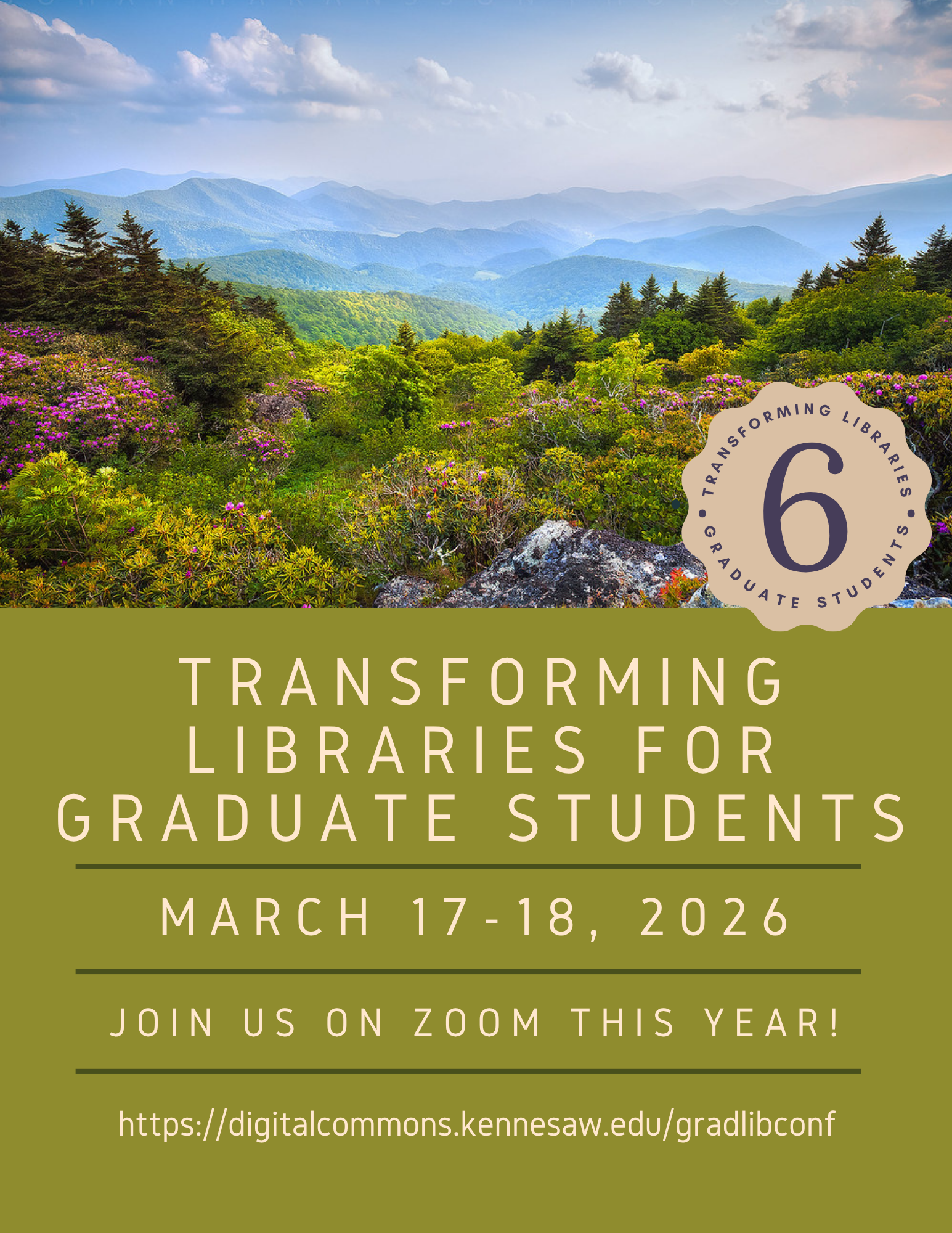Loading...
Keywords
publishing process, unspoken rules, research methods
Description of Proposal
This poster will share the preliminary findings from a mixed-methods research study on graduate students’ knowledge of and faculty support of the publishing process at an R1 university.
The publishing process is arduous and opaque, and graduate students as early career researchers lack a clear, consistent introduction to the process (Belcher, 2009). Graduate students learn as they go, encounter unspoken disciplinary and/or cultural rules that cause confusion, and ask questions like, “how long does it take to get published?”, “what is open access?”, and “how soon should I pick a journal?”. Support from faculty is inconsistent, and faculty have limited time (O’Hara et al., 2019). Also, publishing norms vary across disciplines, but cross-disciplinary training about publishing in general can be valuable (Colla, 2020; O’Hara et al., 2019). Librarians’ efforts should complement those of faculty advisors and their mentoring relationships with students (Baruzzi & Calcagno, 2015; Buehler & Zald, 2013; McClellan, 2017). While it is generally assumed that graduate students need training on publishing, there is a gap in understanding what the baseline knowledge of graduate students is and what information faculty share with them, both within and across disciplines. Developing this understanding positions the library to engage at an appropriate level to address these needs.
The goal of our research is to learn what guidance about the publishing process faculty provide and what graduate students are aware of already and/or learn from their faculty advisors. The research questions cover current practice, current understanding around publishing, mentoring scope and depth, and disciplinary support mechanisms. The methodology consists of interviews followed by a survey. The interviews with faculty and graduate students will generate qualitative data about the experiences of both groups across disciplines (fall 2021 - winter 2022). Librarians will interview faculty, and graduate students from across disciplines will be hired to interview their peers. The subsequent survey will provide quantitative data about publishing practices and knowledge across the entire campus (spring 2022). Our research will inform the initiatives needed for publishing support and services, both tailored to disciplines and across disciplines, from the library.
Making the Publishing Process More Transparent: Identifying a Baseline for Publishing Support through Researching Gaps between Graduate Students and Their Faculty Advisors’ Support
This poster will share the preliminary findings from a mixed-methods research study on graduate students’ knowledge of and faculty support of the publishing process at an R1 university.
The publishing process is arduous and opaque, and graduate students as early career researchers lack a clear, consistent introduction to the process (Belcher, 2009). Graduate students learn as they go, encounter unspoken disciplinary and/or cultural rules that cause confusion, and ask questions like, “how long does it take to get published?”, “what is open access?”, and “how soon should I pick a journal?”. Support from faculty is inconsistent, and faculty have limited time (O’Hara et al., 2019). Also, publishing norms vary across disciplines, but cross-disciplinary training about publishing in general can be valuable (Colla, 2020; O’Hara et al., 2019). Librarians’ efforts should complement those of faculty advisors and their mentoring relationships with students (Baruzzi & Calcagno, 2015; Buehler & Zald, 2013; McClellan, 2017). While it is generally assumed that graduate students need training on publishing, there is a gap in understanding what the baseline knowledge of graduate students is and what information faculty share with them, both within and across disciplines. Developing this understanding positions the library to engage at an appropriate level to address these needs.
The goal of our research is to learn what guidance about the publishing process faculty provide and what graduate students are aware of already and/or learn from their faculty advisors. The research questions cover current practice, current understanding around publishing, mentoring scope and depth, and disciplinary support mechanisms. The methodology consists of interviews followed by a survey. The interviews with faculty and graduate students will generate qualitative data about the experiences of both groups across disciplines (fall 2021 - winter 2022). Librarians will interview faculty, and graduate students from across disciplines will be hired to interview their peers. The subsequent survey will provide quantitative data about publishing practices and knowledge across the entire campus (spring 2022). Our research will inform the initiatives needed for publishing support and services, both tailored to disciplines and across disciplines, from the library.



What takeaways will attendees learn from your session?